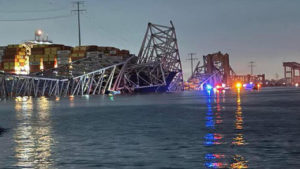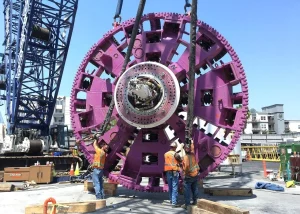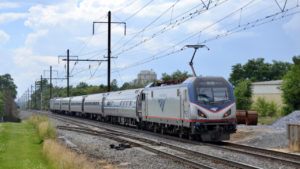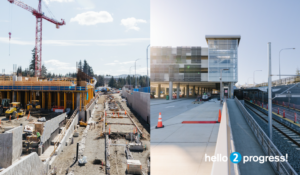Nonprofit Goes to North Dakota Supreme Court over Bismarck-Mandan Rail Bridge Ownership
Written by Jennifer McLawhorn, Managing Editor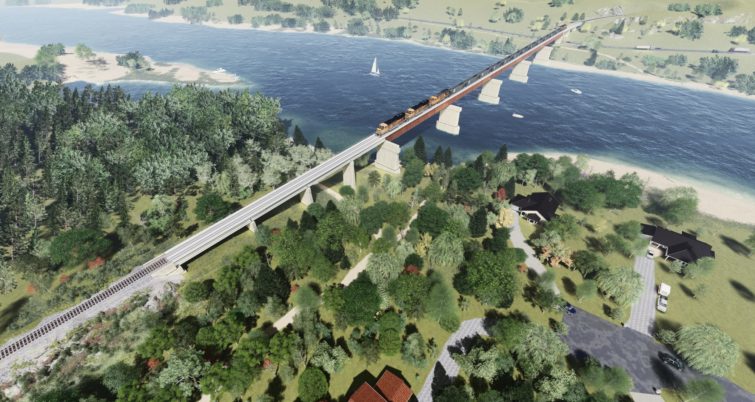
BISMARCK, N.D. – Friends of the Rail Bridge takes its argument of the Bismarck-Mandan Rail Bridge ownership to the North Dakota Supreme Court.
BNSF is constructing a new Bismarck-Mandan Rail Bridge as the current one is at the end of its life. RT&S has reported on the back and forth between the nonprofit group, “Friends of the Rail Bridge” and North Dakota officials regarding ownership of BNSF’s Bismarck-Mandan Rail Bridge. Roughly a month ago, RT&S reported that FORB appealed “a state district judge’s ruling that upheld a decision by the state Department of Water Resources in April to grant BNSF two sovereign land permits – the final hurdle needed to clear to launch construction.” FORB tried to appeal the issuance of those permits, but that appeal was dismissed. The nonprofit does not want to keep BNSF from constructing the new rail bridge; it is working to keep BNSF from removing the current rail bridge and to turn it into a pedestrian bridge instead.
On Monday, the nonprofit group tried to prove that the state of North Dakota owns the bridge by going to the North Dakota Supreme Court. In a report from the Bismarck Tribune, FORB argues that the state has not “asserted its role under the law in deciding whether the structure is torn down.” The attorney for FORB, Bill Delmore, answered questions from justices and argued that “FORB is representing the ‘public interest’ in trying to save a historic structure.” According to Delmore, there are past court cases that set precedent in “both ways.” For BNSF and state agencies, attorneys have argued against FORB’s claims and that the nonprofit has used “an improper legal process.”
Attorney Delmore argued that the state holds ownership over not only the bridge itself, but the riverbed and any “permanent fixtures that were attached at the time of statehood, which would include the rail bridge.” In providing evidentiary support, Delmore referred to a state law that he says would require the State Historical Board to approve the destruction of “historically significant” state property. When asked what “triggers” the law, the attorney replied that it was the use of the words “historical and iconic” to describe the rail bridge.
Back in March, the State Historical Board held a meeting in which it discussed whether or not it had the authority under this law Delmore cites. Drew Wrigley, Attorney General, argued that it does not have the authority to give approval because the rail bridge is privately owned. Agreeing that it does not have the authority to give approval, the State Historical Board still threw its support behind the nonprofit to preserve the bridge.
As attorney Delmore answered justices’ questions on Monday, Justice Lisa Fair McEvers asked about whether or not state ownership would lead to a burden, given that the current rail bridge is 140 years old. Delmore replied that if FORB were to be responsible for posting a bond “if the state claimed ownership, . . . that it would be a very difficult undertaking for us.” Assistant Attorney General Jennifer Verleger argued that the Department of Water Resources “shouldn’t even be here – that it would be improper to circumvent the FORB appeal that is already underway [and that] the Water Resources ‘is not subservient to the Historical Society or the Historical Board’.” Additionally, attorney Verleger argued that the bridge ownership “does not need to be addressed at this time,” because BNSF has acquired the proper permits.
To allow for time to review the matter, FORB asked the court to “issue a stay” which would half BNSF construction on the bridge that started this summer. Attorney Delmore argued that if the state is indeed the rightful owner of the Bismarck-Mandan Rail Bridge, “then the railroad was not the rightful entity to obtain federal permission for a new bridge.” Meanwhile, BNSF has maintained its ownership of the bridge and an attorney for the Class 1, Jason Lien, argued that BNSF “would be seriously harmed if a stay is put in place, even if only for a few months. . . [and] the existing bridge will stay in use for the next three years during construction of the new bridge. Razing of the existing structure would take another year.”

